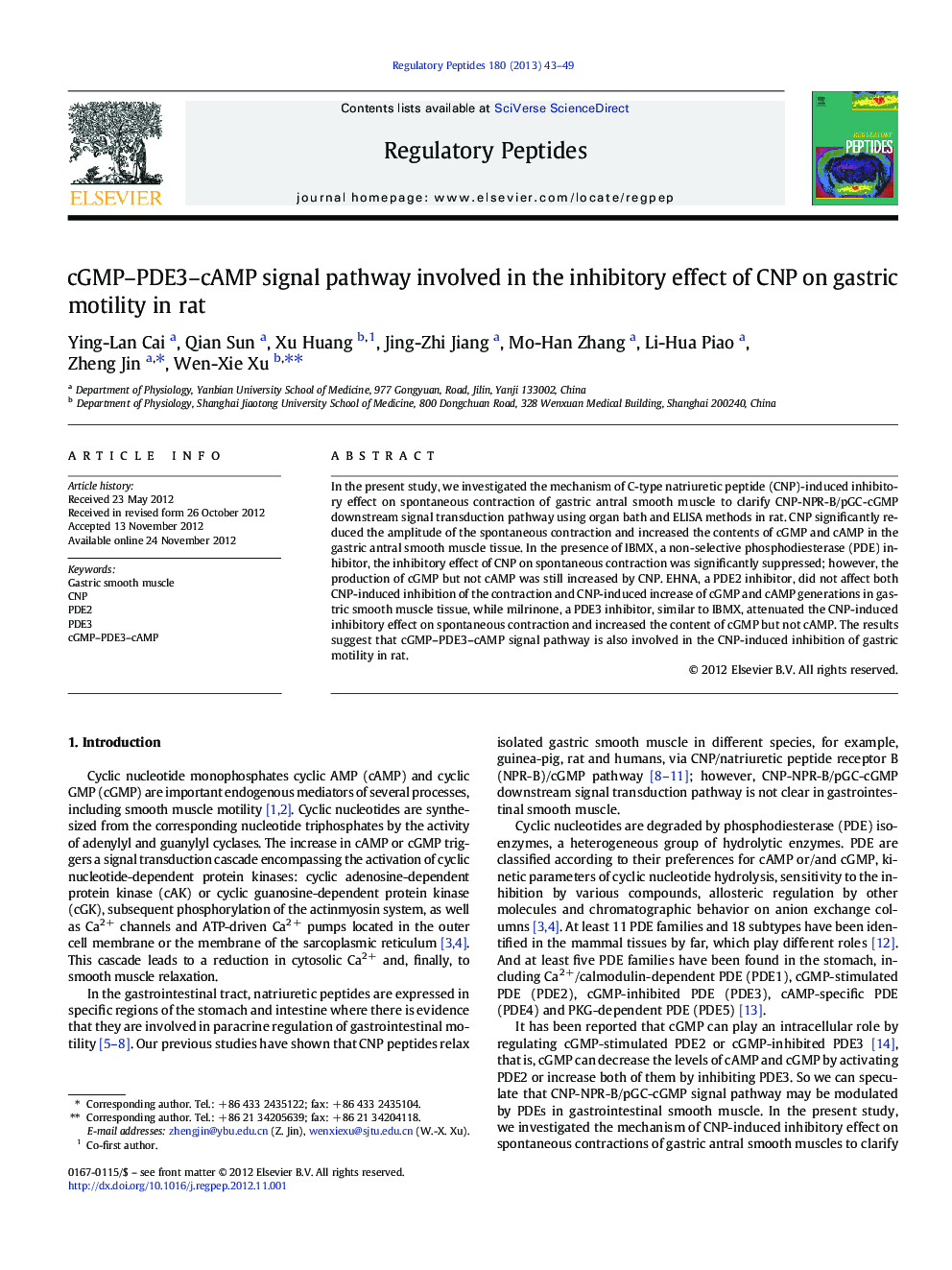| Article ID | Journal | Published Year | Pages | File Type |
|---|---|---|---|---|
| 2022471 | Regulatory Peptides | 2013 | 7 Pages |
In the present study, we investigated the mechanism of C-type natriuretic peptide (CNP)-induced inhibitory effect on spontaneous contraction of gastric antral smooth muscle to clarify CNP-NPR-B/pGC-cGMP downstream signal transduction pathway using organ bath and ELISA methods in rat. CNP significantly reduced the amplitude of the spontaneous contraction and increased the contents of cGMP and cAMP in the gastric antral smooth muscle tissue. In the presence of IBMX, a non-selective phosphodiesterase (PDE) inhibitor, the inhibitory effect of CNP on spontaneous contraction was significantly suppressed; however, the production of cGMP but not cAMP was still increased by CNP. EHNA, a PDE2 inhibitor, did not affect both CNP-induced inhibition of the contraction and CNP-induced increase of cGMP and cAMP generations in gastric smooth muscle tissue, while milrinone, a PDE3 inhibitor, similar to IBMX, attenuated the CNP-induced inhibitory effect on spontaneous contraction and increased the content of cGMP but not cAMP. The results suggest that cGMP–PDE3–cAMP signal pathway is also involved in the CNP-induced inhibition of gastric motility in rat.
► PDE especially PDE3 regulates CNP-NPR-B/pGc-cGMP signal pathway in the gastrointestinal tract. ► cGMP generated by CNP stimulates the generation of cAMP through cGMP–PDE3–cAMP signal pathway. ► The inhibitory effect of natriuretic peptide on gastric smooth muscle motility is mediated by cGMP and cAMP.
